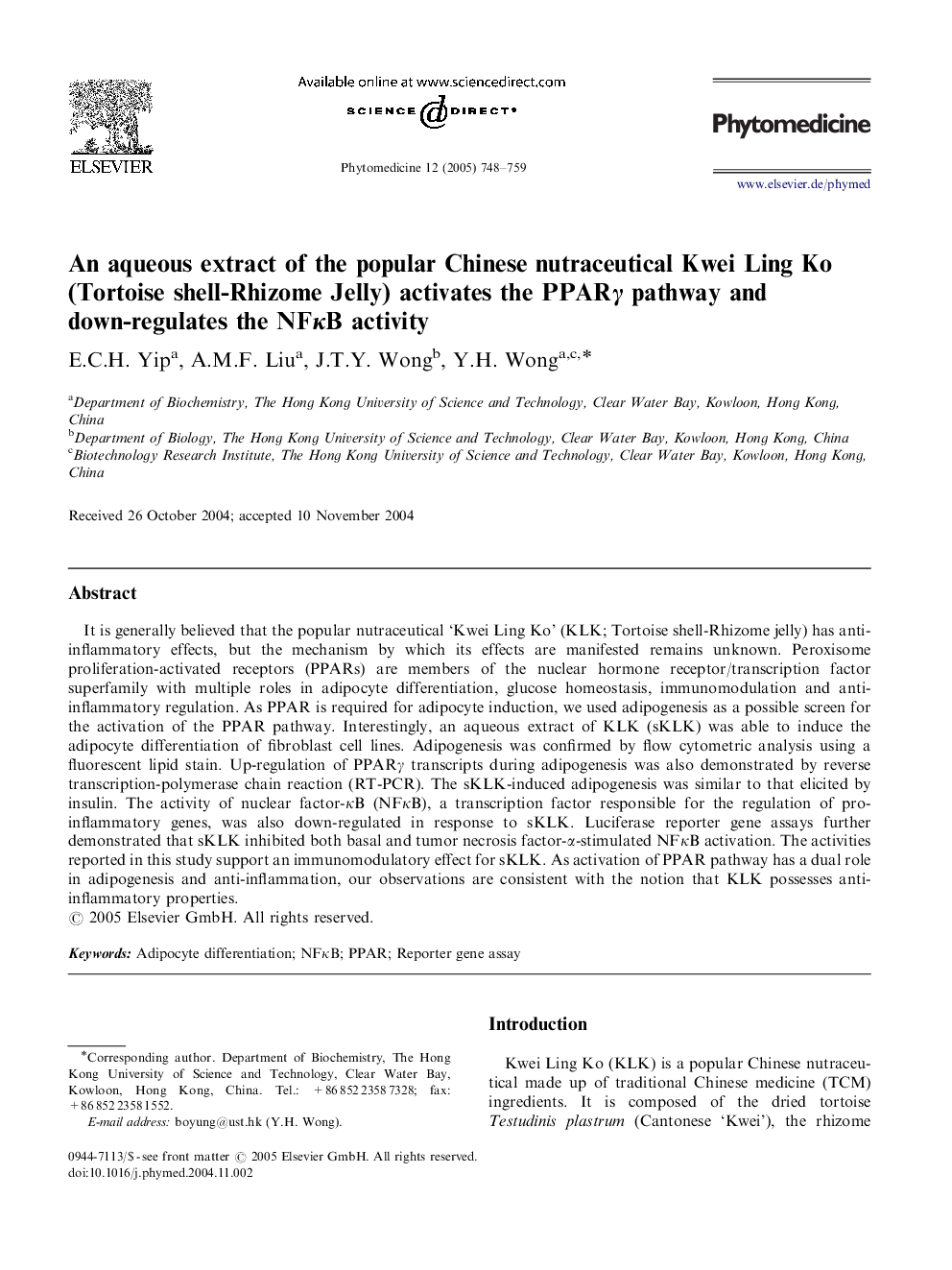| کد مقاله | کد نشریه | سال انتشار | مقاله انگلیسی | نسخه تمام متن |
|---|---|---|---|---|
| 9000112 | 1116268 | 2005 | 12 صفحه PDF | دانلود رایگان |
عنوان انگلیسی مقاله ISI
An aqueous extract of the popular Chinese nutraceutical Kwei Ling Ko (Tortoise shell-Rhizome Jelly) activates the PPARγ pathway and down-regulates the NFκB activity
دانلود مقاله + سفارش ترجمه
دانلود مقاله ISI انگلیسی
رایگان برای ایرانیان
کلمات کلیدی
موضوعات مرتبط
علوم زیستی و بیوفناوری
بیوشیمی، ژنتیک و زیست شناسی مولکولی
بیوشیمی بالینی
پیش نمایش صفحه اول مقاله

چکیده انگلیسی
It is generally believed that the popular nutraceutical 'Kwei Ling Ko' (KLK; Tortoise shell-Rhizome jelly) has anti-inflammatory effects, but the mechanism by which its effects are manifested remains unknown. Peroxisome proliferation-activated receptors (PPARs) are members of the nuclear hormone receptor/transcription factor superfamily with multiple roles in adipocyte differentiation, glucose homeostasis, immunomodulation and anti-inflammatory regulation. As PPAR is required for adipocyte induction, we used adipogenesis as a possible screen for the activation of the PPAR pathway. Interestingly, an aqueous extract of KLK (sKLK) was able to induce the adipocyte differentiation of fibroblast cell lines. Adipogenesis was confirmed by flow cytometric analysis using a fluorescent lipid stain. Up-regulation of PPARγ transcripts during adipogenesis was also demonstrated by reverse transcription-polymerase chain reaction (RT-PCR). The sKLK-induced adipogenesis was similar to that elicited by insulin. The activity of nuclear factor-κB (NFκB), a transcription factor responsible for the regulation of pro-inflammatory genes, was also down-regulated in response to sKLK. Luciferase reporter gene assays further demonstrated that sKLK inhibited both basal and tumor necrosis factor-α-stimulated NFκB activation. The activities reported in this study support an immunomodulatory effect for sKLK. As activation of PPAR pathway has a dual role in adipogenesis and anti-inflammation, our observations are consistent with the notion that KLK possesses anti-inflammatory properties.
ناشر
Database: Elsevier - ScienceDirect (ساینس دایرکت)
Journal: Phytomedicine - Volume 12, Issue 10, 15 November 2005, Pages 748-759
Journal: Phytomedicine - Volume 12, Issue 10, 15 November 2005, Pages 748-759
نویسندگان
E.C.H. Yip, A.M.F. Liu, J.T.Y. Wong, Y.H. Wong,